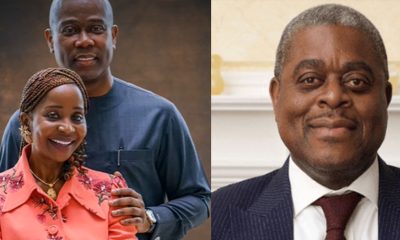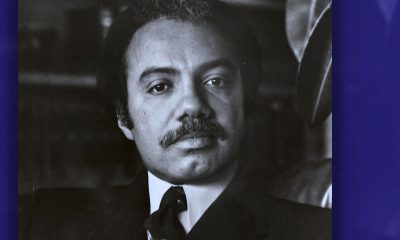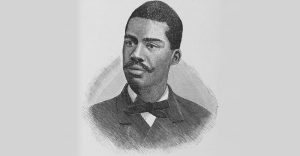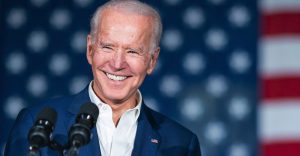World
Nigerian Troops Who Fled Boko Haram Now Have Them on the Run

Women and children rescued by Nigerian soldiers from Boko Haram extremists at Sambisa Forest wait for treatment at at a refugee camp in Yola, Nigeria Monday, May 4, 2015. Even with the crackle of gunfire signaling rescuers were near, the horrors did not end: Boko Haram fighters stoned captives to death, some girls and women were crushed by an armored car and three died when a land mine exploded as they walked to freedom. (AP Photo/Sunday Alamba)
MICHELLE FAUL, Associated Press
YOLA, Nigeria (AP) — A year ago, a dozen Nigerian troops fighting about 200 Boko Haram militants in the town of Chibok exhausted their ammunition and ran, leaving the road open for the abduction of nearly 300 girls.
Today, Nigerian soldiers are rescuing hundreds of kidnapped girls and women from the last forest stronghold of the Islamic insurgents.
The reason for the unimaginably swift shift in fortunes?
In the last three months, military forces from neighboring Chad, Niger and Cameroon have joined the battle. In addition, Nigerian troops are finally receiving better arms and weapons, as well as hazard pay that they had not received until this year.
As a result, Boko Haram’s supply lines are being cut off, creating conditions for the security forces to deliver a potential knockout blow to the extremists who have created havoc in northeastern Nigeria for years.
Nigeria’s military has announced that it has recaptured all major towns seized by the insurgents and that Boko Haram’s main fighting force is hemmed into the Sambisa Forest, where it is being pounded by air raids and attack helicopters. While the government forces are stronger, Boko Haram is growing weaker by the day.
Women rescued in recent days from forest camps said that now it is the insurgents who are running out of ammunition, along with food and fuel. That could explain why — when the captives refused to follow fleeing Boko Haram members last week — the militants did not shoot them. Instead, they stoned the girls and women, killing several of them.
Last year, Boko Haram fighters were able to escape across Nigeria’s borders to evade capture. Now, they are blocked by the troops from Chad, Niger and Cameroon. With Nigeria’s permission, Chad and Niger have even sent their forces inside Nigeria to pursue the extremists.
Routes used by Boko Haram to transport fuel and ammunition have been reclaimed by the military. On Sunday, military intelligence officers arrested a man who allegedly supplied fuel and food to Boko Haram, reported Defense Ministry spokesman Maj. Gen. Chris Olukolade.
Last year’s toll of people killed by Boko Haram was estimated at 10,000 — more than in all the previous four years of the insurgency combined. The group carried out cross-border attacks with impunity, seized a swath of northeastern Nigeria the size of Belgium and created a wave of 1.5 million refugees fleeing the self-declared Islamic caliphate.
President Goodluck Jonathan did not take a strong stand until this year — too late to save him from losing re-election in March as disgusted voters in Africa’s biggest democracy opted instead for Muhammadu Buhari, a former military dictator.
Jonathan also was slow to act when the group last year abducted the more than 200 schoolgirls in Chibok — initially denying it had even happened and losing precious weeks in the mass kidnapping that sparked worldwide outrage and a campaign for their freedom under the hashtag of #BringBackOurGirls. It is still unclear if any of the Chibok girls are among the 700 freed from Boko Haram in the past week.
Buhari had crushed another Islamic uprising in the 1980s, and he has vowed “to rid this nation of terror” after he becomes president on May 29. A retired major general, he describes himself as a convert to democracy, and showed it by taking power through the ballot box.
In the war zone, self-defense civilian groups patrol markets with homemade weapons, looking out for suicide bombers — but also for strangers buying large amounts of food, indicating they could be Boko Haram members or suppliers. While the group still has the ability to carry out bombings and isolated attacks, it would be difficult for it to surpass last year’s carnage.
Nigeria and its African partners say they want to eradicate Boko Haram. A more realistic goal may be to reduce it to what it used to be: a terror group with no control over territory — still able to launch attacks but not on as large a scale as before.
Soldiers on the battlefront around the hills and caves of Gwoza, which Boko Haram had declared the capital of its caliphate, told The Associated Press this week that many improvements have led to the turnaround against the insurgents. Among them:
— Troops this year began receiving the daily hazard pay of 15,000 naira ($75) for the first time.
— Some battle-weary troops who had been on the front lines for two years recently have been allowed to stand down.
— The forces have received new weapons and ammunition. Previously, there were reports that troops going into battle had only 30 rounds of ammunition each, with corrupt commanders diverting resources into their own pockets.
Since democracy was restored in Nigeria in 1999, civilian governments have deliberately kept the armed forces weak to ensure that soldiers could not mount any more of the coups that kept the West African nation subjected to military dictatorships for decades. Boko Haram has forced a change in that strategy.
Africa’s biggest oil producer has bought helicopters, drones, armored personnel carriers, tanks, rocket launchers and other armaments. This includes helicopter gunships that are being used in the Sambisa Forest to scatter the militants and drive them away from their captives, according to video released Monday by PR Nigeria, an agency that disseminates government information.
“What we never had, we now have,” the government spokesman on the insurgency, Mike Omeri, told the AP in a recent interview. “We have drones, we have aircraft, we have APCs, and so on, and we are getting to where we should be to rebuild the armed forces, returning it to its glory.”
Buhari will be tested on whether he can revive the economy in the northeast, which has been decimated by the uprising. Hundreds of thousands of farmers have been driven from their lands, some of the biggest cattle markets on the continent no longer exist and many investors have abandoned the region. Rebuilding the hundreds of thousands of structures razed by Boko Haram will cost many millions of dollars.
The stakes are high for landlocked Chad as well, since many of its trading routes have been closed by the insurgency.
Economic strife has been one of the root causes for the rise of Boko Haram, which has exploited the feelings of exclusion among the unemployed and disaffected men in predominantly Muslim northern Nigeria.
Buhari also has promised to address corruption, another reason for the group’s growth. Corruption sapped the military of its strength and has deprived front-line troops of weapons and vehicles. Unless Buhari can root it out, it will affect the military’s capability to prevent the rise of another group like Boko Haram.
___
Associated Press writer Ibrahim Abdulaziz contributed to this report from Yola, Nigeria.
Copyright 2015 The Associated Press. All rights reserved. This material may not be published, broadcast, rewritten or redistributed.
Activism
Oakland Ambassadors Strengthen Ties and Aid Efforts in Ghana
Oakland natives and esteemed members of the African American Sports and Entertainment Group (AASEG), Jonathan P. Jones and Dr. Maritony Efua Jones, recently embarked on a significant journey to Ghana as guests of the World Martial Authority Ghana. This trip signifies a crucial opportunity to bolster partnerships, explore new avenues of collaboration, and contribute to impactful initiatives in Ghana.
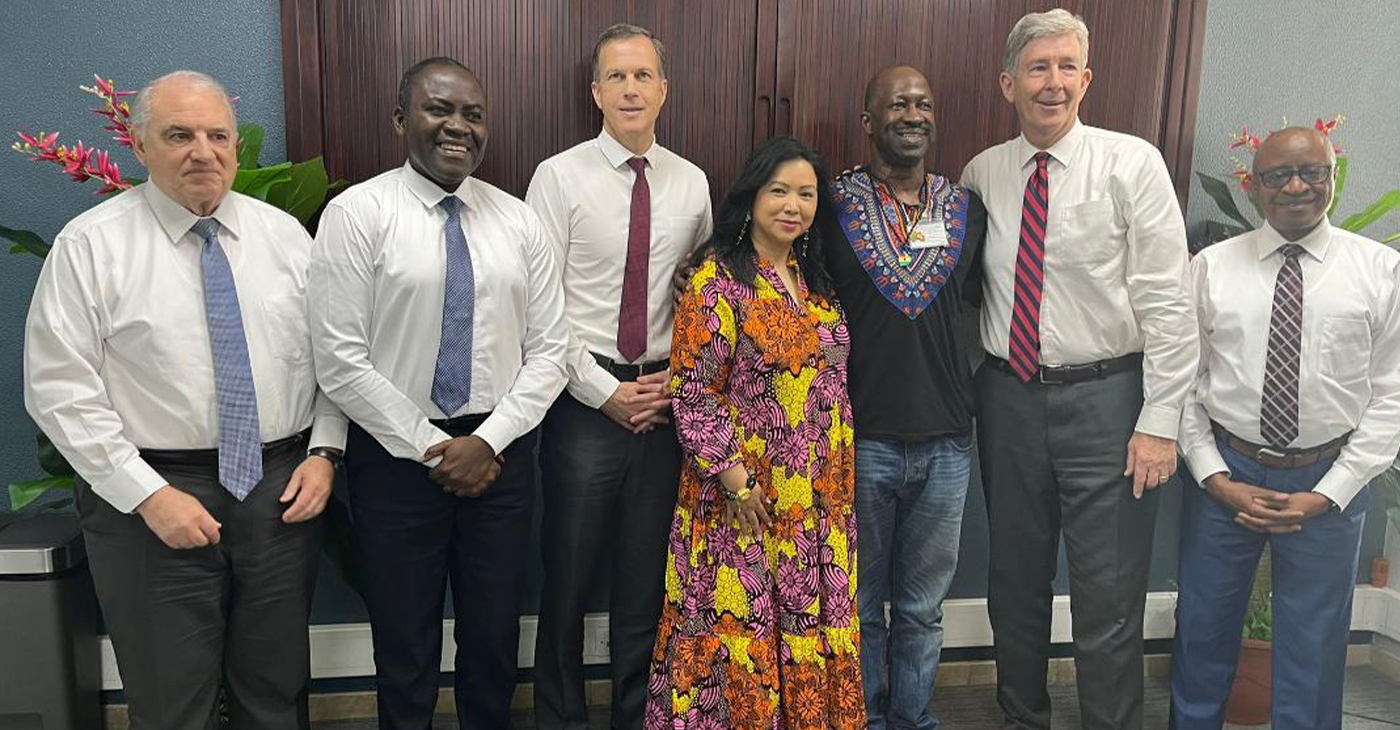
By Post Staff
Oakland natives and esteemed members of the African American Sports and Entertainment Group (AASEG), Jonathan P. Jones and Dr. Maritony Efua Jones, recently embarked on a significant journey to Ghana as guests of the World Martial Authority Ghana.
This trip signifies a crucial opportunity to bolster partnerships, explore new avenues of collaboration, and contribute to impactful initiatives in Ghana.
Upon their arrival at Katota Airport in Accra, Ghana, the Joneses were warmly received by His Royal Majesty Okatakyie Asafo Boakye III, the distinguished king of Sanzule Kingdom in the Eastern Nzema, and Etse Nyamedi of World Martial Authority, Ghana.
Nyamedi accompanied the Joneses to the city of Mepe, which had recently experienced flooding, to assess damages and engage with local leaders, elders, and youth regarding the city’s urgent needs after major floods last fall.
Key concerns and priorities identified by the community include comprehensive flood mitigation measures, agricultural support, housing initiatives, educational enhancements, improved healthcare access, and the development of communal recreational spaces.
The Joneses were also graciously invited to meet with leaders of The Church of Jesus Christ of Latter-day Saints at their headquarters in Accra. This meeting provided insights into ongoing humanitarian efforts in Ghana and explored avenues for collaboration to further assist Ghanaian communities.
The LDS leaders shared their prompt response to the recent flood, demonstrating their commitment to humanitarian aid by dispatching substantial supplies including medical provisions, sanitation items, blankets, and food to assist flood victims just four days after the disaster.
Additionally, Boakye extended a special invitation to the Joneses to his palace, where they were pleasantly surprised with a heartfelt recognition ceremony. Maritony Jones was honored as the Queen Mother of the Sanzule Kingdom in acknowledgment of her dedicated work, while Jonathan Jones was lauded and welcomed as the ambassador of the Sanzule Kingdom, symbolizing a meaningful homecoming to their ancestral land.
The visit not only strengthens ties between Oakland and Ghana but also underscores the collaborative spirit and commitment to meaningful progress and humanitarian endeavors shared by all involved parties.
Barbara Lee
Congresswoman Barbara Lee Issues Statement on Deaths of Humanitarian Aid Volunteers in Gaza
On April 2, a day after an Israeli airstrike erroneously killed seven employees of World Central Kitchen (WCK), a humanitarian organization delivering aid in the Gaza Strip, a statement was release by Rep. Barbara Lee (D-CA-12). “This is a devastating and avoidable tragedy. My prayers go to the families and loved ones of the selfless members of the World Central Kitchen team whose lives were lost,” said Lee.

By California Black Media
On April 2, a day after an Israeli airstrike erroneously killed seven employees of World Central Kitchen (WCK), a humanitarian organization delivering aid in the Gaza Strip, a statement was release by Rep. Barbara Lee (D-CA-12).
“This is a devastating and avoidable tragedy. My prayers go to the families and loved ones of the selfless members of the World Central Kitchen team whose lives were lost,” said Lee.
The same day, it was confirmed by the organization that the humanitarian aid volunteers were killed in a strike carried out by Israel Defense Forces (IDF). Prior to the incident, members of the team had been travelling in two armored vehicles marked with the WCF logo and they had been coordinating their movements with the IDF. The group had successfully delivered 10 tons of humanitarian food in a deconflicted zone when its convoy was struck.
“This is not only an attack against WCK. This is an attack on humanitarian organizations showing up in the direst situations where food is being used as a weapon of war. This is unforgivable,” said Erin Gore, chief executive officer of World Central Kitchen.
The seven victims included a U.S. citizen as well as others from Australia, Poland, the United Kingdom, Canada, and Palestine.
Lee has been a vocal advocate for a ceasefire in Gaza and has supported actions by President Joe Biden to airdrop humanitarian aid in the area.
“Far too many civilians have lost their lives as a result of Benjamin Netanyahu’s reprehensible military offensive. The U.S. must join with our allies and demand an immediate, permanent ceasefire – it’s long overdue,” Lee said.
Bay Area
Nigerian Bank Chief Killed in Helicopter Crash on Way to Superbowl XVIII
According to the San Bernardino County Sheriff’s Dept., the crash occurred near Nipton, on the edge of the Mojave Desert Preserve. The poor weather conditions — rain, wind and snow showers—may have contributed to the accident, although the investigation is not complete. All six aboard were killed. Herbert Wigwe, 57, founded Access Bank in 1989, and it became the country’s largest competitor, Diamond Bank in 2018.
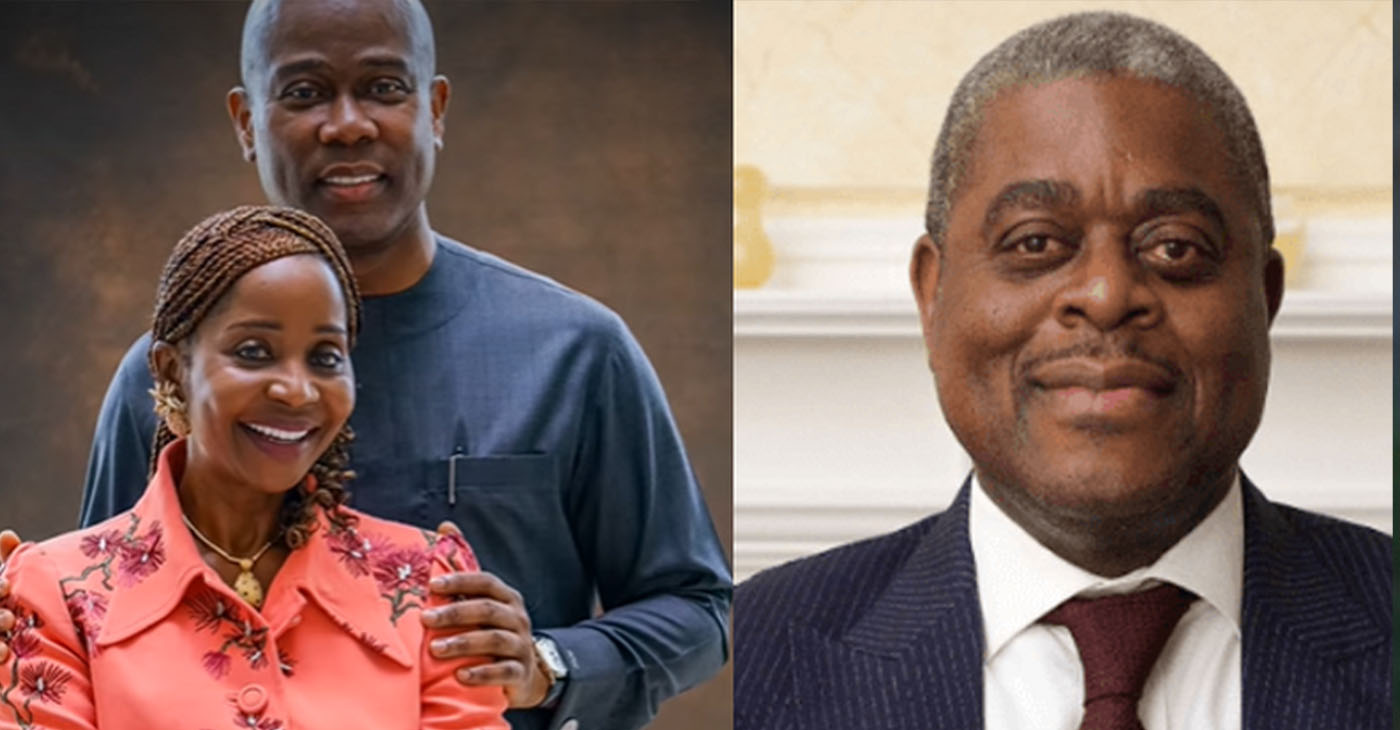
By Post Staff
The co-founder of one of Nigeria’s largest banks died with his wife, son and three others when the helicopter transporting them from Palm Springs, Ca., to Boulder City, Nev. to attend the fifty-eighth SuperBowl at the stadium outside Las Vegas crashed on Feb. 9.
According to the San Bernardino County Sheriff’s Dept., the crash occurred near Nipton, on the edge of the Mojave Desert Preserve. The poor weather conditions — rain, wind and snow showers—may have contributed to the accident, although the investigation is not complete. All six aboard were killed
Herbert Wigwe, 57, founded Access Bank in 1989, and it became the country’s largest competitor, Diamond Bank in 2018.
More recently, Wigwe was planning to open a banking service in Asia this year after making successful expansions to other parts of Africa, including South Africa, Kenya, and Botswana.
Nigerian President Bola Tinubu described Wigwe’s death as an ‘overwhelming tragedy.”
Oakland resident and Nigerian immigrant Kayode Gbadebo agrees with Tinubu. He met Wigwe in Nigeria but crossed paths with him in London in 2006. Wigwe, he said, “took risks.”
He was young and people thought he couldn’t do what he intended, which was not so much about money but community.
“He was more like Jesus in washing the feet of the poor– Wigwe was culturizing community,” Gbadebo said.
“There will never be another like him. This is a deep, deep loss” and he hopes everyone will eventually “be comforted.”
He was also disappointed that a replacement has already been named even before Wigwe is buried. “It is not reasonable. You don’t want a vacuum, but it’s” not fair to the family, Gbadebo observed.
Wigwe had also been working to solve the migration issues from African countries, believing that “investing in higher education was key to controlling mass migration, which “is destabilising countries across the world,” BBC News reported.
“We need to take a holistic approach to address global migration, starting with our traditional framework for international development,” Wigwe wrote.
To that end, according to BBC News, Wigwe was preparing to open Wigwe University in Niger, where he was from.
“The best place to limit migration is not in the middle of the Mediterranean or the English Channel or the Rio Grande. It is in the home countries that so many migrants are so desperate to leave,” he wrote, saying his university was an opportunity for him “to give back to society.”
Besides Wigwe and his wife, Chizoba Nwuba Wigwe, and one son, two crew members and Bimbo Ogunbanjo, former group chairman of the Nigerian Exchange Group Plc, were also killed in the crash.
According to Wikipedia, three other children survive Wigwe.
In his statement reported in People magazine, Tinubu described Wigwe as “a distinguished banker, humanitarian, and entrepreneur.”
“I pray for the peaceful repose of the departed and ask God Almighty to comfort the multitude of Nigerians who are grieving and the families of the deceased at this deeply agonizing moment,” the president said.
He added, “Their passing is an overwhelming tragedy that is shocking beyond comprehension.”
Besides feeling the tremendous loss, Gbadebo fears the disorder and greed that will follow. “It’s a mess,” he said.
People magazine, BBC News and Wikipedia were the sources for this report.
-

 City Government2 weeks ago
City Government2 weeks agoCourt Throws Out Law That Allowed Californians to Build Duplexes, Triplexes and RDUs on Their Properties
-

 Community4 weeks ago
Community4 weeks agoFinancial Assistance Bill for Descendants of Enslaved Persons to Help Them Purchase, Own, or Maintain a Home
-

 Activism3 weeks ago
Activism3 weeks agoOakland Post: Week of April 24 – 30, 2024
-

 Business4 weeks ago
Business4 weeks agoV.P. Kamala Harris: Americans With Criminal Records Will Soon Be Eligible for SBA Loans
-

 Community4 weeks ago
Community4 weeks agoOakland WNBA Player to be Inducted Into Hall of Fame
-

 Community4 weeks ago
Community4 weeks agoAG Bonta Says Oakland School Leaders Should Comply with State Laws to Avoid ‘Disparate Harm’ When Closing or Merging Schools
-

 Community4 weeks ago
Community4 weeks agoRichmond Nonprofit Helps Ex-Felons Get Back on Their Feet
-

 Community4 weeks ago
Community4 weeks agoRPAL to Rename Technology Center for Retired Police Captain Arthur Lee Johnson






